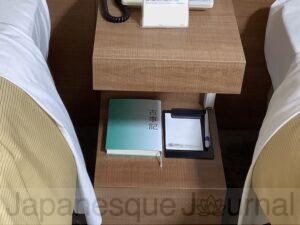1. Introduction
Ryoguzan Tomb (両宮山古墳) is a keyhole-shaped burial mound located in Akaiwa City, Okayama Prefecture, Japan. It is a key-hole shaped tomb (前方後円墳) with a total length of 206 meters, making it the third largest tomb in Okayama Prefecture and one of the three major tombs in the Kibi region. It was built in the late 5th century, which is later than the other two major tombs that were built in the early and mid-5th century. Several satellite tombs were also built around it, with Wada Chausuyama Kofun (和田茶臼山古墳) being the most prominent. Wada Chausuyama Kofun is a scallop-shaped tomb with a length of 55 meters.
2. Ryoguzan Tomb
Heading to Ryoguzan Kofun
I tried to park my car near the Ryoguzan Kofun, but I couldn’t find a parking lot. There were several vacant lots near the tomb, but none of them were clearly marked as parking lots for tomb visitors. When I asked a local passerby about the situation, I was told that there was no parking lot for the tomb. Fortunately, it was a time when the parking lot on that person’s property was available, so I was allowed to park there.
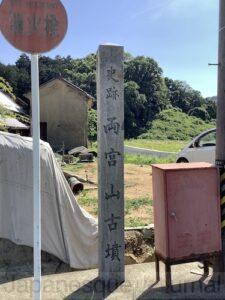
The huge Ryoguzan Tomb
The Ryoguzan Kofun looked much larger than I had expected. Some traces of the surrounding moat remained, and it may have looked even larger than the size of the tomb if they were included. I was able to enter the tomb. After passing by a sign warning of mamushi snakes, I proceeded cautiously and arrived at Ryogu Shrine on the middle slope of the tomb. The shrine was surrounded by trees and had a serene atmosphere.
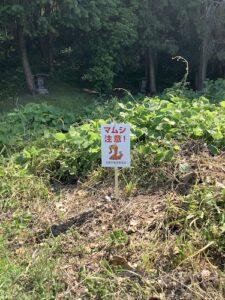
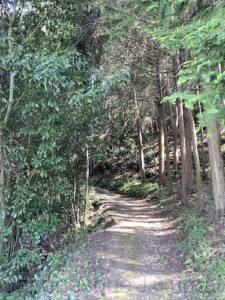
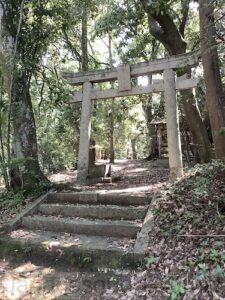
After paying my respects at the shrine, I looked up to see if I could climb further up. I found a faint animal trail leading further up beyond the shrine. Brushing away the grass while swatting away mosquitoes, I was able to reach the top of the tomb. However, it was difficult to see much beyond the trees because they were so overgrown. Beyond the trees, I could see glimpses of the surrounding moat.
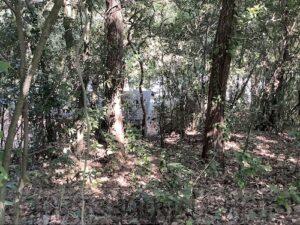
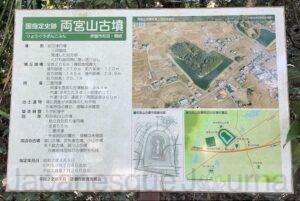
After descending from the tomb, I took pictures of it through the surrounding moat. It was magnificent. The moat is no longer completely intact and about half of it has been filled in. Upon closer inspection, it can be seen that not only is the area around the tomb neatly trimmed and maintained but also that paths leading to it are maintained by locals or others in the area.
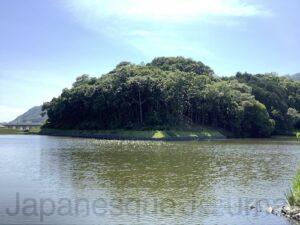
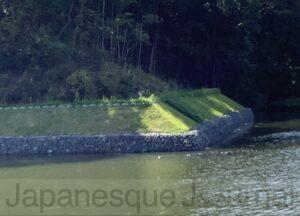
Wada Chausuyama Tomb
After that, I visited the Wada Chausuyama Kofun located north of Ryoguzan Kofun. It is a small tomb, but you can see that the embankment is firmly built. It was difficult to find the road that leads up to the tomb because the grass was overgrown. After pushing through the grass and making my way up, I reached the top. There was a sign at the top that explained its origin. The top was somewhat spacious, but it seemed difficult to go further because the grass was overgrown, so I went back down from there.
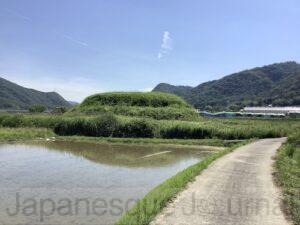
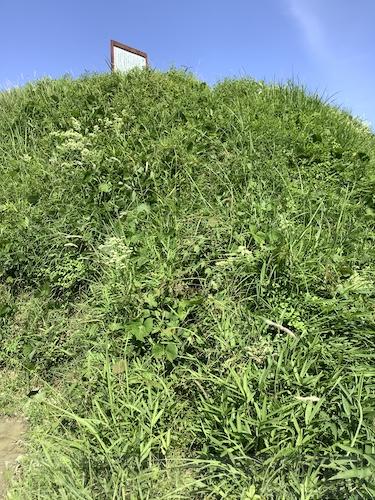
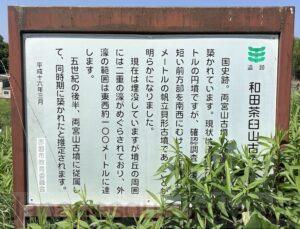
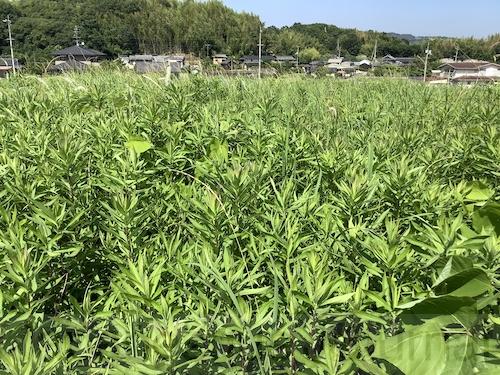
Conclusion
Ryoguzan tomb was indeed a huge tomb as rumored. It is interesting that it has a moat, which is rare for huge tombs in Okayama Prefecture. It is difficult to get there without a car because it is located in an inconvenient location, but if you have the opportunity, I recommend you to visit it!

